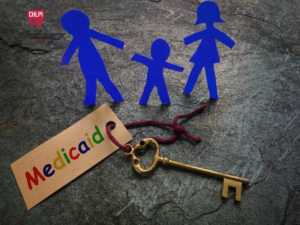Originally written by Arlene Karidis and published on Waste 360 on January 26, 2023.
Food manufacturers, retailers, restaurants, caterers, farmers, and schools now have reason to let go of a fear many of them have long harbored: a fear of litigation if they donate their surplus food. The Food Donation Improvement Act (FDIA), signed into law December 2022, amends the Bill Emerson Good Samaritan Food Donation Act, which was intended to encourage food donation, but had some glitches. A big one was ambiguous language explaining the rules around donation.
The FDIA clarifies and expands liability protections outlined in Emerson. Perhaps the most monumental reform is that it lays a more streamlined path for qualified entities to donate food.Now they can donate directly to people in need in their communities when prior they had to arrange to get it to nonprofits that distribute it.
FDIA had full bipartisan support, passing unanimously and as a standalone bill, a little over a year after its introduction.
WeightWatchers; Grubhub (an online food ordering and delivery platform); and The Food Law and Policy Clinic of Harvard Law School were among earliest partners working to push the legislation through. As they reached into their networks, who in turn reached into their networks, the movement snowballed.
A coalition of 70 organizations quickly emerged. An open letter to Congress was created with recommended amendments, signed by grocers, food recovery organizations, restaurants, logistic companies, food product companies, food banks, and schools.
Collectively, advocates secured 60,000-plus citizen signatures on a Change.org petition and hand-carried it to Congressman Jim McGovern (D-MA) on Capitol Hill who ultimately introduced the bill, alongside Representatives Dan Newhouse (R-WA), Chellie Pingree (D-ME), and Jackie Walorski (R-IN).
“The idea behind these efforts was to show that there is cross-sector support, involving private, nonprofit, and academia. To show Congress that all of these people, each with their own role, are on board,” says Niyeti Shah, senior manager of Social Impact for WeightWatchers, who drafted the open letter and led the coalition.
The Emerson Act attempted to encourage companies to donate surplus food and grocery products to nonprofits by providing civil and criminal liability protection to food donors and food recovery organizations.
It was the first-of-its-kind legislation and well-intentioned, but simply didn’t go far enough, says Amy Perlik Healy, vice president, Government Affairs, Grubhub. The organization has a long history of partnering with food rescue groups.
Healy and her team were the main point of contact for congressional offices in Washington around the FDIA, explaining how these policy makers’ constituents would be impacted by the bill and how the legislation would make it easier for constituents and businesses in their districts to join in the fight against food insecurity.
Since Emerson’s passage in 1996 the access problem has climbed steadily, coming to a head in the throes of COVID, which brought more attention to gaps in the food system. Restaurants forced to close were initially left with excess food, as were farmers who had fewer outlets for what they’d spent a whole season growing. Yet a growing number of people, now out of work, were going hungry, adding to a population that was food insecure even before the pandemic.
It was as ideal a time as any for food businesses and others in the community—like schools with excess food— to think about donating to their neighbors in need.
While many of these entities have resumed “business as usual,” the disconnect between operations with more food than they can use and the food insecure remains. In 2021 alone, $408 billion was spent on food that was never eaten. That’s nearly a quarter of all good edibles in the U.S. going to waste, Healy points out.
“But now qualified donors can help meet needs and are offered liability protection for good work in their communities,” Shah says.
FIDA also opens up opportunity to advance newer food delivery models –social supermarkets that offer food at a deep discount. Qualified businesses and organizations can now donate to these operations too, without risking liability.
“So, through the Food Improvement Donation Act we are meeting evolving needs of both donors and recipients,” Shah says.
Grace Klein Community, who joined the coalition to back the FDIA, distributes food to people in need in Alabama.
In 2022 the nonprofit rescued and distributed food through several drive-through locations, impacting 396,809 people in 41 counties. With the contributions of 240 donors and 1,000-plus volunteers it completed over 10,000 pickups, rescuing 2.04 million pounds of food.
Jenny Waltman, founder and CEO of Grace Klein Community, anticipates even greater donor participation in 2023 due to the amended act.
“We are excited for the expanded potential for overage food to be reallocated to the food insecure to fill plates and not landfills,” she says.
“The legislation will further ignite and honor what the Emerson Good Samaritan Food Donation Act set out to accomplish.”
At least as powerful in her eyes is the law’s potential to raise awareness of the food waste crisis and inspire volunteers and staff to reinforce their efforts through improved education and understanding.
The Food Recovery Network (FRN) is composed of college chapters whose members, students from schools across the U.S., rescue food and distribute it to people in need. Since its inception in 2011, students and other stakeholders have recovered almost 11 million pounds of food, delivering more than nine million meals.
FRN Executive Director Regina Anderson and her team pulled the students in to advocate for and promote the FDIA. As students supported the legislation, the legislation will in turn help them in what they set out to do, Anderson surmises.
“Our model is built on relationship building. And students are actively working to change the minds of food businesses who say no to doing the right thing with their surplus food because they do not have the full set of information,” she says.
“Now, with expanded liabilities protection and a new federal law to support and encourage food donation, our students are equipped with a new tool to help educate those food businesses.”
Key to making this bill work will be the desire and willingness to “do the right thing with surplus food,” she surmises.
“When you start from that mindset, the FDIA and Bill Emerson Good Samaritan Law and the tax enhancements that may be available simply act as winds in the sails.”
There is work to do in 2023 to implement the act on the ground.
WeightWatchers and Harvard Food Law and Policy Clinic will support the USDA in issuing additional legal guidance. And the coalition will work with local partners to guide potential donors on how to recover food under the new guidelines.


Health Law & Policy, Commentary
Day One Executive Orders: How Will They Impact Health Care Access? – Health Care in Motion
January 23, 2025